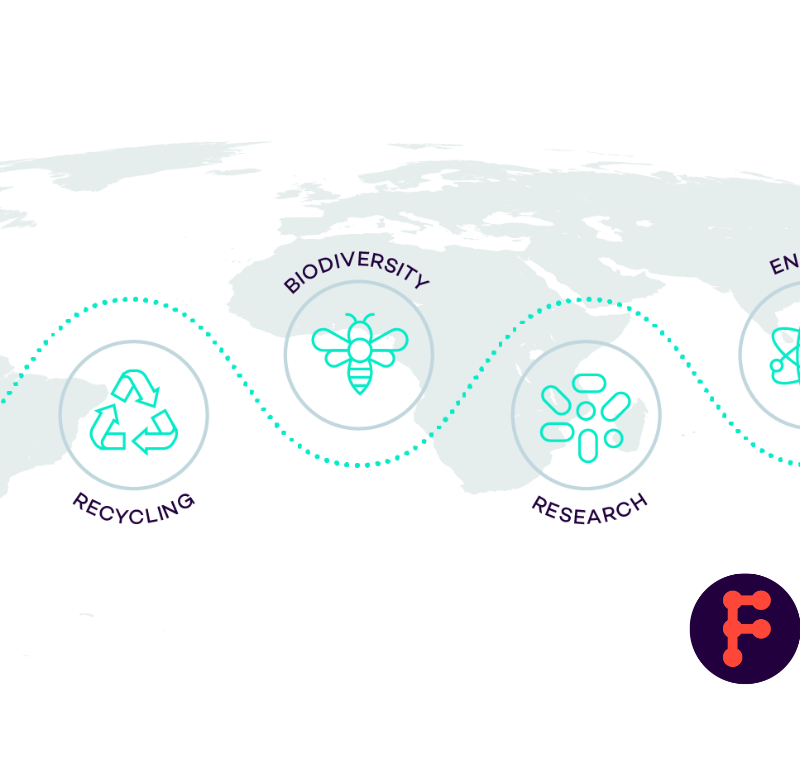Why some innovators are more successful than others
In her book, Lucy drew a series of conclusions most notably six common characteristics which explain why some news organisations are more successful than others. They are:
- A singularity and sureness of purpose
- Unequivocal strategic focus, strong leadership
- A pro-digital culture
- Deep integration technology
- Autonomy
- Starting early and pushing digital innovation before your peers
Lucy will be one of the speakers at the Digital Innovators’ Summit (DIS) in Berlin, Germany from 20-22 March 2016. Our discounted, pre-agenda booking option is currently available, saving you +€800 on final delegate rates.
Lucy, who spends her time advising and researching on strategy, innovation and leadership in the media, has amassed a series of interviews with key personnel from the companies (The Guardian, The NYT, BuzzFeed and more) she believes are leading the way in terms of innovation. She then asked the execs crucial questions. What do they have in common? Is a kind of best practice starting to emerge?
DIS contributor Ashley Norris quizzed Lucy about how she compiled the book, the importance of brand loyalty for media companies and how she thinks European publishers will tackle the challenge of their expansionist North American rivals.
What inspired you to write the book? How did the writing process come together? Were the main protagonists – like Alan Rusbridger, former editor of the Guardian – easy to secure interviews with?
My motivation for doing this research was twofold. First, two decades into the internet, in terms of legacy media, there seemed to be a cadre developing of organisations who were pulling ahead of the pack. Essentially, all print news organisations had recognised the digital challenge and were responding, but some seemed to be ‘responding better’. I was curious about how they were achieving this, and if there were commonalities in their responses. If yes, that would mean by extension that a kind of best practice for digital news was emerging.
Second, an earlier research project (which will be my next book) that I had carried out with CEOs of legacy media firms on what they thought had gone wrong over the past couple of decades, and what in hindsight they would have done differently, showed that innovation was the big challenge. In fact, it looks like all the energy and resources that used to go into strategy are now going into the field of innovation. Assuming those legacy players leading the digital news field were better at innovation, how were they doing it?
Getting interviews in general was a very difficult and long-winded process, even when organisations had in principle agreed to make themselves available. In terms of legacy players, the Reuters Institute at Oxford University (where Lucy is a research fellow) has fantastic industry connections, so getting initial agreement from those at the top for interviews was not too difficult. Fixing the actual interviews was much harder – the individuals I needed to speak to are understandably really busy. Access for the digital pureplays was more complicated. I succeeded in the end thanks to a couple of key high level individuals who very generously made the initial introductions and then a lot of perseverance – some interviews involved tens of emails before they were tied down.
What criteria did you use to choose the titles you profiled? Are there any other titles you would have liked to have written about?
Selecting the cases was almost as time consuming as getting access. I have sheets and sheets of analysis tables where I evaluate possible options.
As I discuss in the book, in the current environment the term ‘success’ can only be used in a qualified way. However in the end I chose the cases according to a set of metrics including substantial international digital audiences, solid digital revenues (although note that privately held companies like BuzzFeed, Vice and Quartz do not disclose actual figures, but their high levels of private investment can act as a proxy here), and substantial investment in quality journalism (with ‘quality’ another of those terms that is hard to definitively define – but the amount of original content, coupled with the presence of high calibre, in some cases award-winning, journalists on the staff can serve as some kind of proxy).
Another important criteria was autonomy in terms of strategic and organisational decisions – this, for example, ruled out BBC News, since their ultimate strategic scope and by extension innovative options are prescribed by the terms of the Royal Charter.
The most pragmatic selection criteria was native language. The difficulties in getting access meant that I used more secondary data than I had planned to initially. This ruled out Schibsted, for example, since a lot of secondary sources are in Norwegian or Swedish. Axel Springer was another contender – here, I speak German so language would not have been a problem. The issue here was more that I suspected the true innovation for this organisation is primarily located at the leadership level, so I would have needed a different unit of analysis – the activities of the corporate centre.
Mail Online was on the list for a short while, but has a different content philosophy. The pureplay I would have like to have included (but ran out of time) is Vox. On the legacy side, The Economist would have been a candidate. Maybe for the second edition.
Do you think that there is a correlation between being a broadly liberal newspaper and embracing innovation?
No. I think the key correlation is funding that provides a degree of protection from market forces. That can take many forms: private ownership, foundation status, family ownership. As someone from The Washington Post said this week, the difference between life there, pre and post Bezos, is that now they have resources and the runway to invent.
Do you think that the legacy brands – Guardian and NYT – have less brand loyalty among the young (under 30) then they did 15 years ago? In other words are the young more promiscuous in their reading habits and less loyal? Does this impact on their ability to charge for content – paywalls etc
There clearly is a link between a loyal readership and the ability to charge for content. I’m not sure whether younger demographic groups are more promiscuous in terms of media content options – I suspect we all are creatures of habit, even the young. I think the problem is more attracting those younger demographic groups in the first place. The social-mobile media consumption context is very crowded (the recent Reuters Digital News Report highlighted how few news sources are used on the smartphone). BuzzFeed and Vice are succeeding in attracting the younger demographic consistently, and that of course is why they are succeeding with native and attracting high levels of funding.
Do you think news has now become fully commoditised? Will organisations like The Guardian and NYT start to focus even more on opinion, longform and insight as times goes by?
Short-form news has been commoditised. I think digital news providers will start to segment their news offering much more clearly between breaking news, in-depth analysis where they will employ digital storytelling tools, and longform/insight.
Which do you think will be the first high profile mainstream newspaper to jettison their print edition?
The print editions are still keeping the lights for most newspapers, so this move is a way off. Digital revenues are growing, but still a long way off compensating totally for print revenues.
Do you think native advertising format is going to be the way in which newspapers survive in the long term?
Native advertising will definitely be a key element in the mix. It was noticeable that all of the players I profiled had prioritised native – BuzzFeed, Vice and Quartz are more or less native only. Events and membership are a current favourite new revenue stream, although with absent financial data it’s hard to know if this is really a new income source or a way of building a relationship with audiences.
Do you think that the current debate about ad blockers is really worrying publishers as much as some media commentators think it is?
Yes – it is a big issue, since it threatens to wipe out a still nascent income stream. Ad blockers will accelerate the shift to native – although as the book shows, native done well in a way that doesn’t compromise editorial quality or alienate audiences is an expensive proposition.
Do you think any of the Buzzfeed clones that followed in its wake have a future?
As the BuzzFeed profile shows, it is an exceedingly smart, cohesive, well-funded and well-led entity that pivots fast and has great timing. On top of that, it benefits from a series of subtle, interlocked elements around the integration of data analytics, content creation, tech systems and commercial elements that are extremely well executed and tightly synchronised. Elements of BuzzFeed can be copied, but it would be very difficult to clone it.
It seems to be very difficult for European media websites to be successful on a global scale. Yet US brands like Politico, BuzzFeed etc seem to travel well. Will US media companies dominate the online world in the future?
English as a native language (which brings the potential for market scale) and close links to the tech sector are probably the key advantages for the US players. This is why the key players in ‘minority’ language regions such as Germany and Scandinavia look to grow through acquisition, it is also why news organisations are investing so heavily in digital technologies and ‘digital editorial thinkers’.
Do you think that media companies should embrace the new platforms like Snapchat Discover and Facebook Instant Articles or is giving content away like that akin to turkeys voting for Christmas?
This is a very strategic issue, and the strategic options are, in practice, limited. Facebook Instant Articles, Apple News, Snapchat Discover are huge traffic drivers, especially for millennial and mobile audiences, so collaboration is probably unavoidable. Having said that, the relationship is asymmetrical. As a news broadcaster said last week, it’s delusional to think you can set the terms. The new intermediaries own the platforms, write the algorithms and have the data. So far they have been relatively good about sharing data, but it’s their data.
But it’s worth noting that collaboration is not an option for everyone, since so far Facebook and Apple have been cherry-picking their partners, choosing dominant players in national markets. And Facebook and Google seem less interested in smaller national markets.
Lucy will be one of the speakers at the Digital Innovators’ Summit (DIS) in Berlin, Germany from 20-22 March 2016. Our discounted, pre-agenda booking option is currently available, saving you +€800 on final delegate rates.
More like this
Why/how DIS helps media companies – CEOs and others chip in
Schibsted SVP, ReadWrite & Wearable World CEO join DIS line-up







